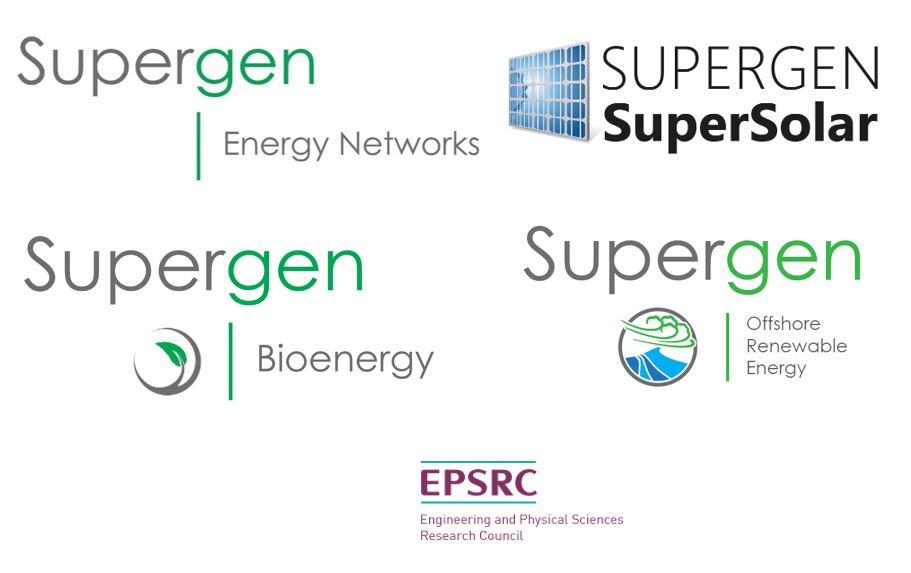News Items
UK research hubs launch latest phase of sustainable energy programme
Today sees the formal launch of the latest phase of Supergen, UK Research and Innovation’s flagship programme to deliver coordinated research on sustainable energy generation, supply, distribution and use.
The Supergen Energy Networks Hubleads the programme’s work on energy networks. Led by Hub Director, Professor Phil Taylor, Head of School of Engineering at Newcastle University, the Hub brings together the diverse and vibrant energy networks community, from academia, industry and government. We aim to gain a deeper understanding of the interactions and inter-dependencies of energy networks
The four research hubs that comprise the energy programme will welcome members of parliament, policy makers and industry representatives to the meeting hosted by James Heappey MP at Portcullis House, to look at the challenges associated with reducing the UK’s reliance on fossil fuels and implementing a sustainable energy system.
Attendees will hear from representatives of the research hubs and funding councils about previous research, the history of successful investment and the interactions between research and industry.
A panel of industry leaders will discuss questions such as what skills are needed for a decarbonised society, what trading opportunities a low-carbon economy offers and what regulation and governance changes are needed to accelerate the UK’s move to a low-carbon energy system.
The Government, with UK research funding councils, has committed to furthering UK excellence in energy research through sustained funding of Supergen, which now represents one of the UK Government’s largest single investments in fundamental research on low-carbon energy generation, sustainable networks and use.
The latest phase comprises four multidisciplinary research consortia: Supergen ORE (Offshore Renewable Energy), Supergen Bioenergy, Supergen Energy Networks and Supergen SuperSolar. The hubs work to connect academia, industry, policy and public stakeholders, encouraging the transfer of knowledge and resources to support the development of sustainable energy systems in the UK and beyond.
Chair of the Supergen High Level Group, Jenny Cooper, comments: “The Supergen Programme represents our commitment to fund fundamental research that will accelerate the move to a low-carbon energy future. This event provides the hub with a platform to connect with policy makers, demonstrate their successes to date and position sustainable energy high on the political agenda.”
Achieving Government targets of net-zero emissions by 2050 will require contributions from a variety of renewable resources and conversion technologies deployed across a range of demand sectors. The combined efforts of the Supergen hubs and the energy programme will be critical in achieving this.
About the hubs
Despite their vital importance to the UK's energy sector, industry and society, there is no current whole systems approach to studying the interconnected and interdependent nature of energy network infrastructure and the challenges it faces. The Supergen Energy Networks Hub will establish a vibrant, well-connected, diverse, open and communicative energy networks community with a deeper understanding of whole systems approaches to energy networks.
The Supergen Offshore Renewable Energy Hub provides research leadership to connect academia, industry, policy and public stakeholders, inspire innovation and maximise societal value in offshore wind, wave and tidal energy.
The SuperSolar Hub is a complementary mix of researchers within the photovoltaics (PV) field in the UK, with internationally recognised expertise. By working together and engaging with industry, the SuperSolar Hub has played a crucial role in the development of perovskites as exciting Third Generation PV materials that are now on the cusp of commercial realisation.
Research within the Supergen Bioenergy Hub looks at the whole bioenergy chain, examining the characteristics and potential of different biomass and feedstocks, developing pre-treatment and conversion processes and identifying the best ways to deliver bioenergy. It also takes a holistic view of energy systems, assessing the role and impact of bioenergy on them and on related sectors. The hub’s research is underpinned by strong engagement with industry, policy and societal stakeholders.

published on: 17 June 2019
